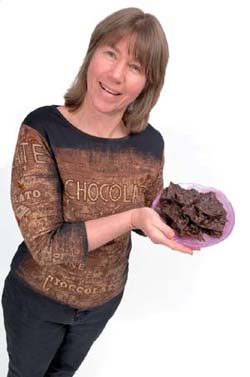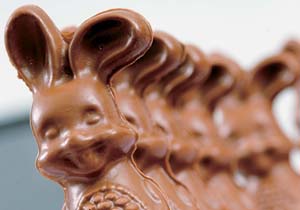 |
 |
| current issue |  |
past issues |  |
send a letter/news |  |
address update |  |
advertise |  |
about us |  |
alumni home |
Features
Second ActWhy have just one career when you can have two?
by Suki Casanave '86G
Until recently, the recipe for a successful career went something like this. Graduate from college with a goal in mind, head in that general direction, work hard, and continue on an upward trajectory in your job until you arrive at the pinnacle of your career. Voila! There you have it: the definition of success. Not anymore.
These days, the average graduate can expect to have had 10 to 12 jobs by the age of 32, according to the U.S. Department of Labor; a recent study by Merrill Lynch notes that 76 percent of baby boomers plan to "retire" to new careers. Here at UNH, the Career Center reports that a third of their clients are alums, many of whom are exploring new job options. The world of work, it seems, is changing.
What's it like to be pursuing a career path--and then make a switch? Why do people do it? How do they adjust? What do they learn? To find out, we asked our readers--and you responded! We received hundreds of responses from alums with stories to tell. The six profiled here, most at mid-to-late stages in their working lives, may not have realized that they are part of a national trend--dubbed by one book "the demise of the single-career career." But they speak from hard-won experience. A diverse group, they share one thing in common: they've discovered that the goal isn't so much about arriving. It has more to do with satisfaction and fulfillment along the way, with loving the work you're doing. This, they'll tell you, is true success.

|
Jayne Gray Murray '79
Jayne Gray Murray '79 has a good ear for chocolate. "It's not just the taste that matters," explains the CEO of the New England Chocolate Company. "Well-tempered chocolate has a certain sound--a good, crisp snap--when you break it."
It makes sense that a former speech pathologist would know good chocolate when she hears it. Murray spent more than two decades in the public school system in Salisbury, Mass., listening closely, helping children with speech problems make themselves understood.
Today, she's got her ear tuned to chocolate. The change, she says, was unexpected. "One day they told me my position needed to be full time," says Murray, who had worked part time throughout her career as she raised her children. Murray decided a full-time job wasn't for her. "So I told them, 'OK! I'm done.'" Murray is matter-of-fact about the abrupt end to her career. "I was ready for something else. I just didn't know what."
Murray and her husband, Les Murray '90G, who is the principal of the local high school, spent hours discussing franchise possibilities. They owned a house on a piece of commercial property on busy Route 1, an ideal spot for a business. And then, one day, it hit them: chocolate! "Both of us are big fans, and there's no really good chocolate in this area," she says. Murray spent the next year in her kitchen, testing recipes and learning to temper chocolate. "This is key," she notes, rattling off the abbreviated recipe for well-tempered chocolate: Bring it to 110 degrees. Cool rapidly to 88 degrees. Then bring it back to around 90 degrees to stabilize it. "You have to get it right or the chocolate will look terrible, cloudy and dull--and no snap." She bought recipe books, spent hours doing research online, and attended a huge chocolate show in New York. And she tested her creations--over and over again. So did her friends.
Some of her most enthusiastic testers were former colleagues. "My husband would take in a test batch to the teachers' lounge," says Murray, "and they'd be gone by 8 a.m." In a blind taste test with friends and family members, Murray chose Callebaut chocolate from Belgium to use for her business. "It's more expensive, but it's worth it," she says, describing the clean, smooth taste. And she worked on developing her special fillings: orange creams, raspberry creams, coconut, peppermint, and the especially popular dark chocolate ganache: "I only make things I like," she says.

|
During the first few years, while she was developing recipes (and throwing away plenty of badly tempered batches), Murray also demolished a garage, built a retail store in its place, created a business plan--and worried. "There were many nights when I lay awake thinking, 'What are we doing?'" she admits. The New England Chocolate Company opened for business on New Year's Day in 2004. "And I have never regretted it," she says. "It's a wonderful business." And, it turns out, she's still part therapist: "People come through the door and will often tell you their problems. But they're coming in for their chocolate. So ultimately, they're happy! I'm not saving the world," she says, "but I'm helping to make people happy."
Page: 1 2 3 4 5 Next >Easy to print version
blog comments powered by Disqus
